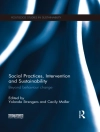With the popularization of Albert Einstein’s Principle of Relativity, many were questioning how such statements as “a clock will strike the hour later or sooner according to the point of view from which it is watched” were possible. Carus attempts to explain the Principle through these essays, including “On The Absolute, ” “Tricks of Cognition, ” “Objectivity, ” and more.
Om författaren
Paul Carus (1852-1919) was a German-American author, philosopher, theologian, and editor. Brought up in an orthodox Protestant family, Carus developed liberal ideas which prompted him to move away from home to America. He edited several journals promoting free thought, then went on to write books, as well as correspond with figures such as Tolstoy, Edison, and Booker T. Washington. He pioneered interfaith dialogue, as well as created his own concept of religion, called the Religion of Science. He wrote The Soul of Man (1891), The Gospel of Buddha (1894), Nietzsche and Other Exponents of Individualism (1914), among many others.












